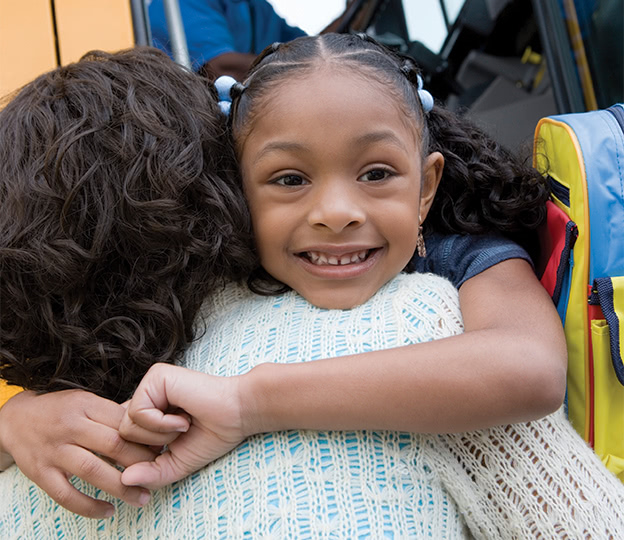
Section
Starting School
All parents want their children to do well in school—to learn, to think for themselves, and to get along with others. A child who is ready for school can express his feelings. He cares about the feelings and needs of others. He is eager, curious, and able to pay attention. And he can give and receive help. If your child is not ready to start school, you may want to let him start a little later.
Where to Find Help
Things You Can Do
Help Your Child Do Well in School
Make sure your child has a good night’s sleep. Most young children need 10 hours of sleep every night.
Make sure your child eats breakfast.
Ask about his day. Ask questions that require more than a yes or no answer.
Set limits on screen time. Read with your child instead.
Know who your child’s friends are and invite them over.
Keep your child out of school when he is sick.
Use your library. Public libraries are free. Many libraries have story time, tutoring, ESL (English as a Second Language) classes, and computers.
Take an Active Part in School
Get to know your child’s teacher and his friends’ parents.
Go to back-to-school nights and parent meetings.
If you do not speak English, make sure the school staff talk with you directly or through an interpreter, not through your child.
When to Start School
Most children start kindergarten when they are 5. Children who turn 5 between September 1 and December 2 may be smaller and less mature than those who turn 5 earlier in the year. Starting school may be harder for the younger children.
In California, younger 5-year-olds can go to transitional kindergarten (or TK) for 1 year. They go to kindergarten the next year. This gives them extra time to grow and mature, so they are more like their classmates.
Transitional kindergarten is part of the elementary school system. In some school districts, transitional kindergarten is open to a wider age range. Ask your school district whether your child can go to transitional kindergarten.
Is Your Child Ready for School?
Your child is more likely to have a good first school year if he can:
Play well with other children.
Pay attention while a story is being read.
Use the toilet by himself.
Ask questions and interact with teachers and classmates.
Play on his own.
Questions to Ask About School
Find out which public school your child will go to. Plan a visit before school begins.
Ask when you should enroll your child.
Ask how many hours a day your child will be in school.
Ask about the skills your child should learn before going to first grade.
Ask about shots your child must have before he starts school.

Ask your child about her school day, and show interest in what she is learning and doing.
Bullying and Teasing
Children who are bullied or teased may grow up feeling depressed or angry. They may also bully others. Bullying is not the same as a fight. It is when one child picks on another over and over again.
If your child tells you someone is picking on him, take the problem seriously. Try to work it out with his teacher or principal, and the parents of the other child. Make sure the bullying stops, even if you have to put your child in a different class.
If your child is bullying other children, tell him it is not OK to act that way, and take action to stop it. Try to find out what makes your child want to pick on other children. Counseling may help.